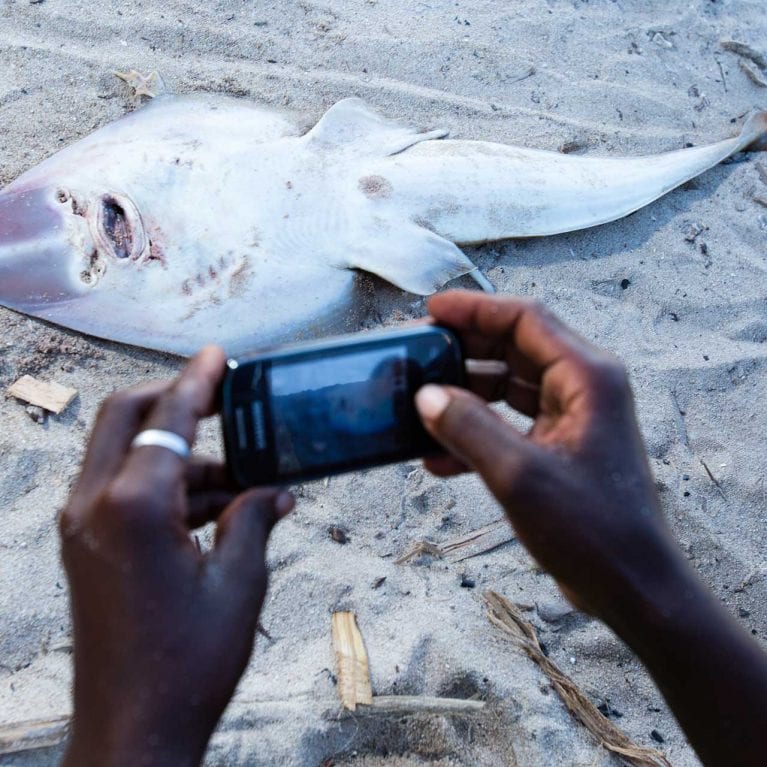Mobile sharks
Madagascar’s sharks are in steep decline. Frances has trained members of the Vezo community to collect real-time information about local shark fishing using mobile phones.
(Project funded in 2013, 2014 and 2015)
Most people working in marine conservation say that they have always had a passion for the sea and its inhabitants since as far back as they can remember. My background is no different, and learning to scuba dive and seeing marine creatures up close confirmed that this environment would define the rest of my life.
After studying biology and marine biology at university in the UK, I volunteered and worked for marine conservation groups in the Philippines and Indonesia. There I savoured the opportunity to learn the Latin names of corals and was proud that...

Shark assessment and conservation in Madagascar using mobile phone technology
To create an information and communication network based on everyday smart-phone technology, to provide broad-scale data needed for shark population assessment and monitoring, and to catalyse effective conservation measures for shark species on a national scale in Madagascar.
A major stumbling block to establishing effective and broad-scale conservation of shark species is the paucity of information on their ecology, fisheries and socio-economic value. In the absence of any such understanding, diverse and unconnected stakeholders have no basis or motivation to enact meaningful conservation measures.
Madagascar’s coastline of more than 5,500 kilometres comprises the most diverse and extensive shallow marine habitats in the western Indian Ocean region. Its waters harbour 81 recorded species of shark, although it is estimated that there could be 123 shark and ray species in total.
Despite the biodiversity of Madagascar’s sharks, there is a paucity of information on their ecology, fisheries and socioeconomic value. There are good reasons for the present information and management vacuum: much of the fishery takes place in remote fishing grounds scattered over thousands of kilometres of coastline; the fishers are highly mobile and move great distances to productive fishing grounds; and in the absence of any such understanding the diverse and unconnected stakeholders have no basis or motivation to enact meaningful conservation measures.
The recent extension of GSM mobile phone coverage to much of Madagascar’s coast now provides an excellent opportunity to use an information and communication network to help overcome these barriers. The project will establish a network of community data collectors and managers, equipped with mobile phones and solar panel chargers, to monitor shark fisheries. Through establishing such infrastructure, all stakeholders will effectively share information and communicate, despite many of them being isolated and widely dispersed.
The overall aim of the project is to set up and trial an information and communication network based on everyday mobile smart-phones in southwest Madagascar that provides data needed for the conservation of sharks.
The project has two main objectives:
- Establish a functioning ICT network based on mobile phones that provides reliable data.
- Create an operational website presenting data in real-time, which can be accessed by all interested parties (e.g., fisheries departments, NGOs, etc.)

